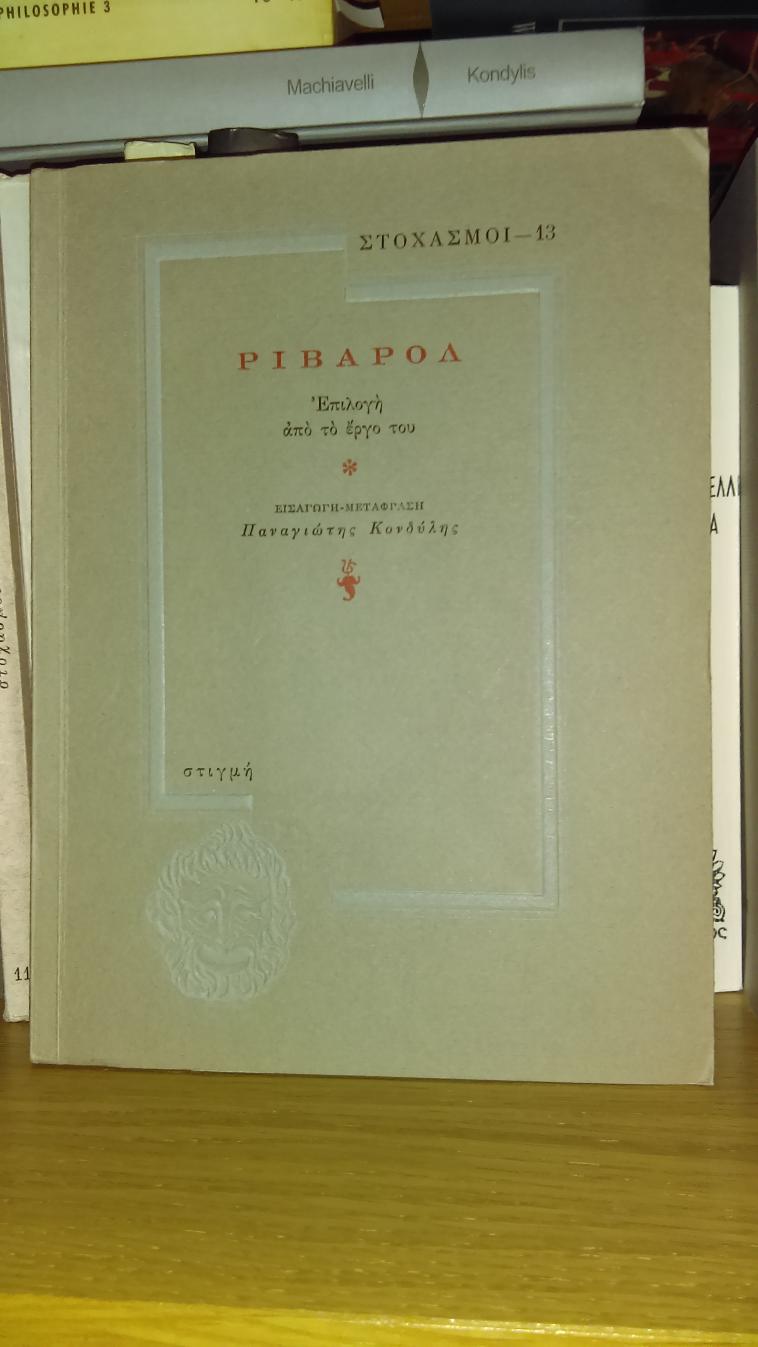
|
Introduction to RIVAROL by Panagiotis Kondylis.pdf Size : 312.863 Kb Type : pdf |

[[READ THIS, WISE GUYS!!!]]
“ ... the passions of the large masses are not only more naked, but also more elemental, they are simpler and deeper. In periods of normality, when the institutional and ideological (river(-))bed, where the life of the political community flows, appears to be steady and the direction given, the multitude does not but desire bread and circuses (and in these circuses, politics itself can wonderfully be included). When the bread becomes rare (and is in short supply) or is in danger [[of running out]], then the circuses too become diluted and less frequent and less regular or grow wild; and as the political community polarises, the soul of the masses accordingly condenses in one-dimensional and perspicuous (distinct) passions, which follow the logic of black and of white, without the sense (and feeling) of shades and hues, and without deepening in (regard to) facts and causes: idols are contrasted and opposed to daemons, and fanatical hate/hatred does not know of any alternative solution other than blind worship.
Since the masses are the raw material of politics, and since the masses are dominated and ruled by (the) passions, political activity could be defined as the manipulation or management of mass passions. This (manipulation) again can be undertaken in two different senses and from two different positions, in accordance with the fundamental division of the political calendar into epochs of normality (regularity), and into epochs of revolutionary tumult. ...”
[[GUESS WHAT COMES NEXT!!!]]" ... Most statements by Rivarol bear witness (attest) to his conviction that the formation of a more or less self-sufficient stratum of philosophers-intellectuals tends to attach to the social-political struggles, a new form and additional acuteness. If the prestige of the philosophers-intellectuals and of the people of letters already overshadows the luster of the thrones, then the pure force (power) of ideology is in a position to compete with every material and institutional dominant authority. In the extreme and typical case, the radical intellectual springs from (the) social nought, that is, he does not come from groups with old wealth and socially self-evident influence, but slowly(-slowly) creates a name from inside the conduits of the profession of the legal profession or of journalism, for instance. As a social type, he is, therefore, [[at]] the antipodes, or thereabouts, of the hereditary aristocracy. His only, or his almost only, assets are ideas, and he uses them as the beati possidentes of the higher/upper classes use their material assets: as a means and weapon for the acquirement and maintenance of social power. The intellect(-spirit), thus, becomes the product of polemics, not simply in the general sense that ideas turn as a rule against all other ideas, but in the special and concrete (specific) sense that ideas constitute an organ of the personal predominance of certain humans, i.e. of all their respective representatives."